Introduction
In the previous post, we translated the first sentence of the One Piece manga, composed by three words: Wealth, Fame, Power.
Let’s continue our reading and have a look at the first baloon
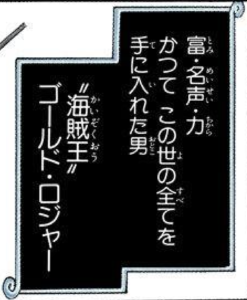
Like all mangas, One Piece is read from right to left and from the top to the bottom. So, this is the balloon content written in our way
富・名声・力
かつてこの世の全てを手に入れた男
〝 海賊王〟ゴ一ルド・ロジャー
Another fact of the Japanese language that you may have noticed is that there are no spaces. How do we know when a word ends and the next one starts then? Well, the fact that kanjis are used for “proper” words and hiragana is (mostly) used for conjunction, conjugation and stuff like that.
…But this doesn’t help us much for this first sentence, as we already have two consecutive words in hiragana 😀
In this case, you just have to know the word you are reading, or at least one of them to deduce the other from the context. Let’s analyze the single words and then try to understand what the balloon is saying!
The first sentence
Let’s highlight the words inside the first sentence based on what they are:
And the reading (with spaces) is
katsute kono yo no subete o te ni ireta otoko
Let’s have a look at the single parts
かつて (katsute)
この (kono)
Kono is another word with a kanji writing 此の that is pratically always written using kana alone. It is a “pre-noun adjectival” or a “attribute adjective”. But aside from this technicalities, it simply means “this”.
世 (yo)
This kanji means “generation, world, society, public”. The “main” meaning with this kanji is “world”, but to remember it it’s easier to link it to the “generation” meaning, as it is composed by three kanjis for ten 十 linked together, representing a new generation born every 30 years.
The sentence ’till now means something like “once, this world…”
の (no)
In this case, the hiragana “no” enclosed between two words takes the name of “particle”, meaning suffixes after words used to join them, kinda like conjunctions.
This particle indicates possession, kinda like the English possessive “‘s”. “Mario’s pen” becomes “Mario NO pen”.
So in this case, 世 is the owner of the thing followed by の
全て (subete)
The kanji 全 means “whole”, and we can remember it by its parts 个, which resembles an umbrella, and 王, which means “king”, as the king rules and join together heaven, earth and men (represented by the three horizontal lines).
So, our 全 fits a “whole” king under it!
When used in the 全て word tho, it alters a bit its meaning. This word means “everything, all”.
世の全て can then be translated with “everything that this world owns”, but since the world is not a person and it doesn’t “have” things in the strict sense of a possessive “‘s”, the more accurate translation is “everything in this world”.
So, “once, everything in this world…”
を (o)
The particle を (o) marks the object of the sentence. So we know that the previous part “everything in this world” answers to the “what?” question of the verb, which in Japanese comes at the end of the sentence.
手に入れた (te ni ireta)
I know, I split this words in the colored version, but you should really consider all of this the verb. The “main”, “proper”, “inside”(?) verb is 入れた, which means “enter”, “insert”. Where do we insert the thing this verb is referring to? 手 means “hand” and に is the particle used to indicate a destination. So, literally “to insert in (my) hands”. All together, they form a different verb (手に入る), which means “to obtain”. In this case it’s conjugated to the past tense.
Remembering the を particle, the sentence becomes “once […] obtained everything in this world”
You’ll notice that there’s a very importa information missing: the subject of the sentence! Let’s see the last word
男 (otoko)
Composed by “rice field” 田 and “power” 力, this kanji means “man”. You can remember it by the men being the only ones who used their strength in the rice fields to work in ancient times.
So how does this attach to our sentence? “A man obtained everything in this world once”? Or “The man obtained everything in this world once?”
The subject in japanese is defined (usally) at the start of the sentence with the particles は (wa), が (ga) orも (mo), so this man is not the “standard” subject of this sentence.
This particular construction “verb-noun” is translated as “noun who verb”, which means the translation is: “The man who once obtained everything in this world“. It seems this balloon is introducing us to someone!
The second sentence
Fortunately, this is very simple. Let’s see what we have!
海 (kai)
This kanji 海 when alone means “sea”, and it’s read うみ (Umi). The furigana “kai” already hints to us that it should be read together with the next one to form a different word. But let’s see what 海 has for us. This 氵is the radical for “water”, so when a kanji has it, you can be sure it has something to do with water. The other part 毎 means “every” and is in turn composed of person (亻 in horizontal) and mother 母.
- person 亻+ mother 母 = every 毎. As in “every person has a mother”
- water 氵+ every 毎 = sea 海. As in “every drop of water will return to the sea”
賊 (zoku)
賊 means “burglar” and it is composed by 貝 (shell, also represents money), 十 (ten) and 戈 (halberd, arms). This is maybe a bit of a stretch, but you can remember it with “a thief looking for money with a lockpick and a weapon”
“Thief” in conjunction with “Sea” means.. you guessed it, it means pirate!
王 (ou)
We saw this kanji in the previous paragraph for being part of the 全て, so I’ll just say it again: it means king.
All three kanjis, together with the quotation mark, spell out a title: “the king of the pirates”
ゴ一ルド・ロジャー
This different and more angled alphabet is katana, which is used to write foreign words. In this case, it literally reads as: GO-O-RU-DO RO-JA-A, which is, finally, the name of our sentences’ subject: Gold Roger
All together now
Wealth. Fame. Power. The man who once obtained everything in this world, the king of the pirates: Gold Roger!
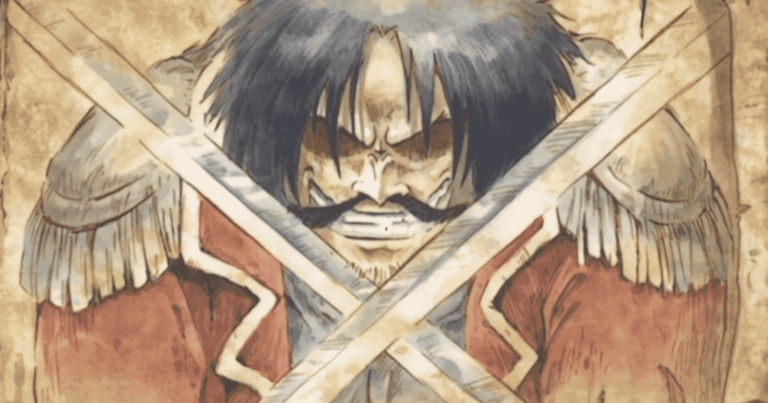
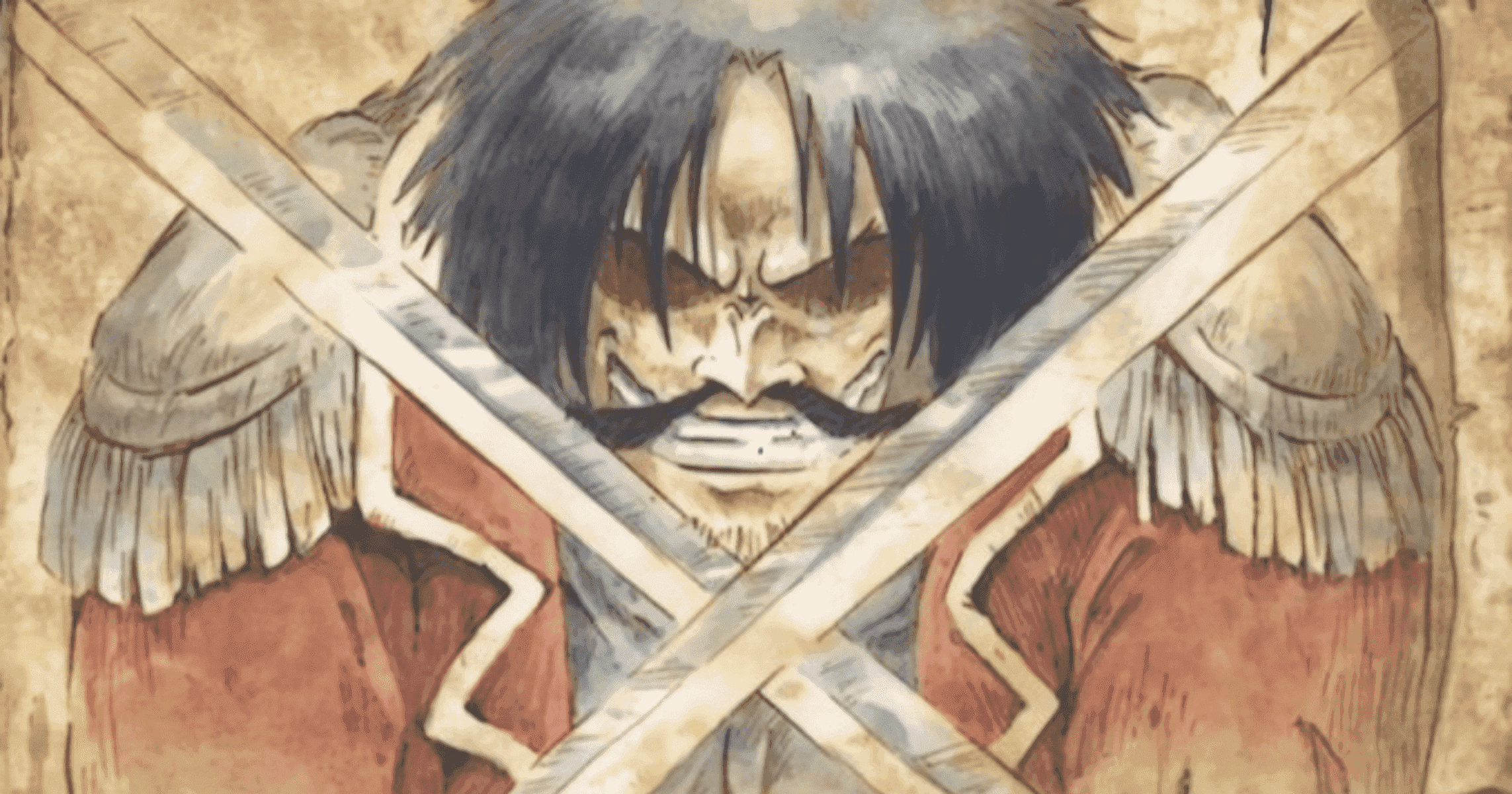
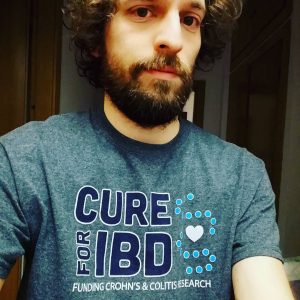
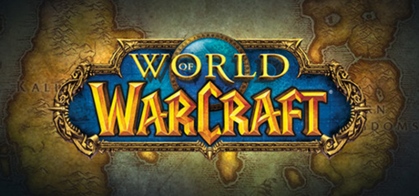
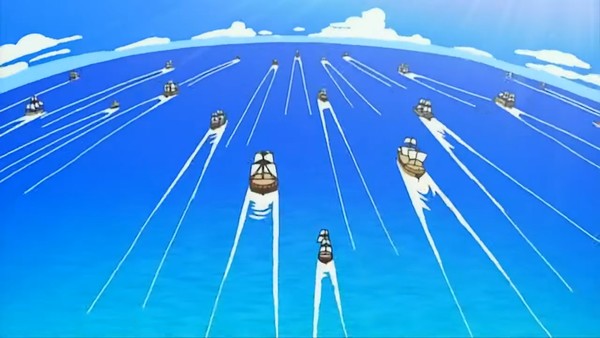
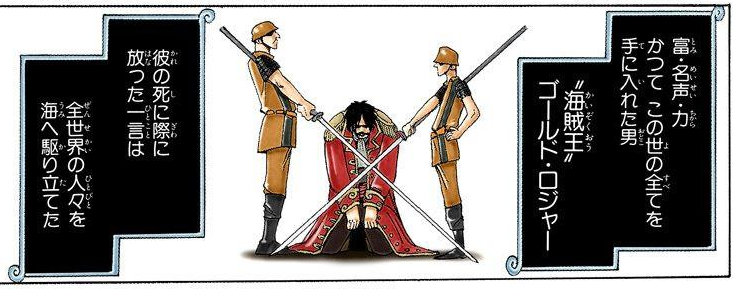
One Response